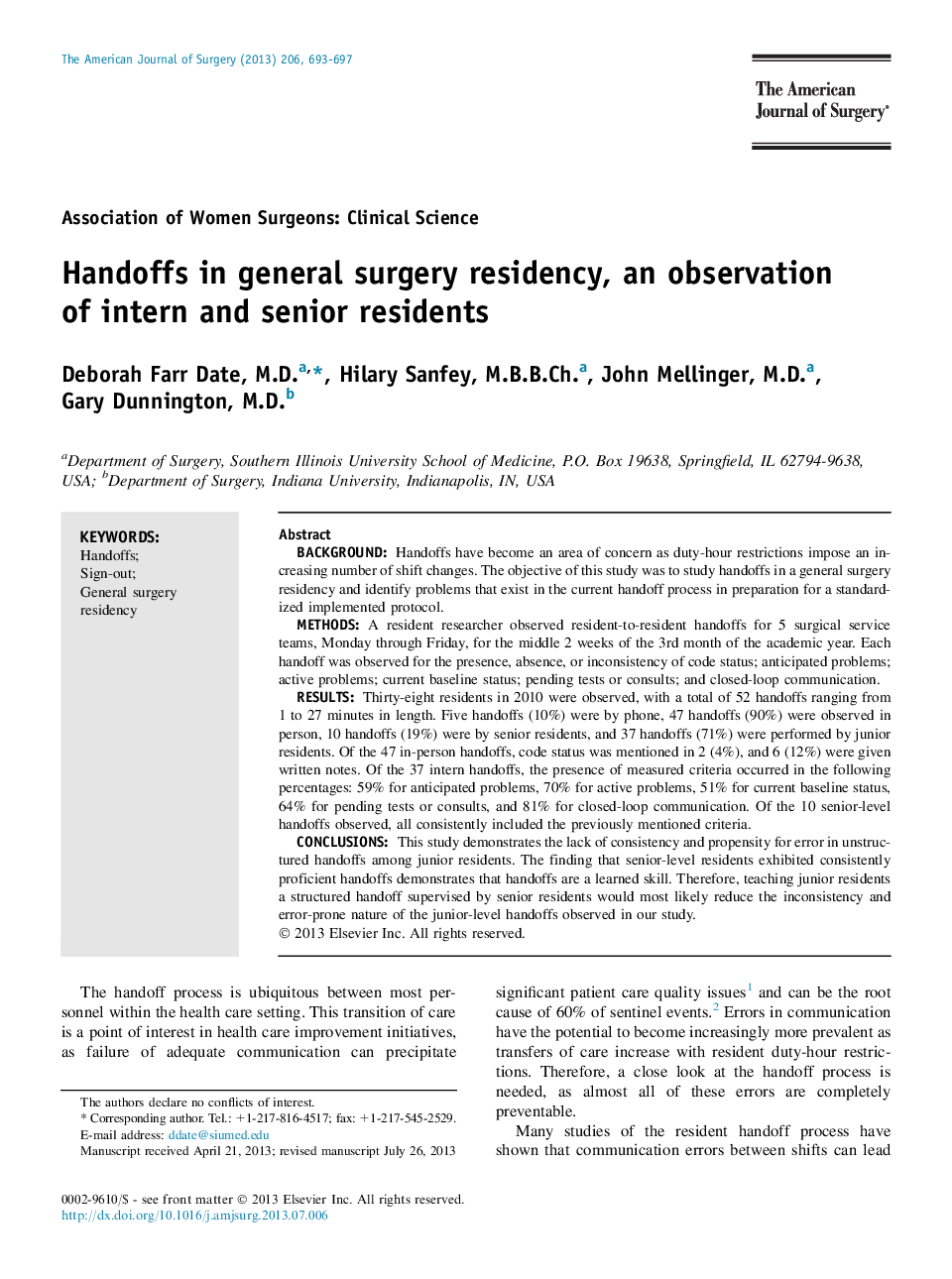| Article ID | Journal | Published Year | Pages | File Type |
|---|---|---|---|---|
| 4278831 | The American Journal of Surgery | 2013 | 5 Pages |
BackgroundHandoffs have become an area of concern as duty-hour restrictions impose an increasing number of shift changes. The objective of this study was to study handoffs in a general surgery residency and identify problems that exist in the current handoff process in preparation for a standardized implemented protocol.MethodsA resident researcher observed resident-to-resident handoffs for 5 surgical service teams, Monday through Friday, for the middle 2 weeks of the 3rd month of the academic year. Each handoff was observed for the presence, absence, or inconsistency of code status; anticipated problems; active problems; current baseline status; pending tests or consults; and closed-loop communication.ResultsThirty-eight residents in 2010 were observed, with a total of 52 handoffs ranging from 1 to 27 minutes in length. Five handoffs (10%) were by phone, 47 handoffs (90%) were observed in person, 10 handoffs (19%) were by senior residents, and 37 handoffs (71%) were performed by junior residents. Of the 47 in-person handoffs, code status was mentioned in 2 (4%), and 6 (12%) were given written notes. Of the 37 intern handoffs, the presence of measured criteria occurred in the following percentages: 59% for anticipated problems, 70% for active problems, 51% for current baseline status, 64% for pending tests or consults, and 81% for closed-loop communication. Of the 10 senior-level handoffs observed, all consistently included the previously mentioned criteria.ConclusionsThis study demonstrates the lack of consistency and propensity for error in unstructured handoffs among junior residents. The finding that senior-level residents exhibited consistently proficient handoffs demonstrates that handoffs are a learned skill. Therefore, teaching junior residents a structured handoff supervised by senior residents would most likely reduce the inconsistency and error-prone nature of the junior-level handoffs observed in our study.
